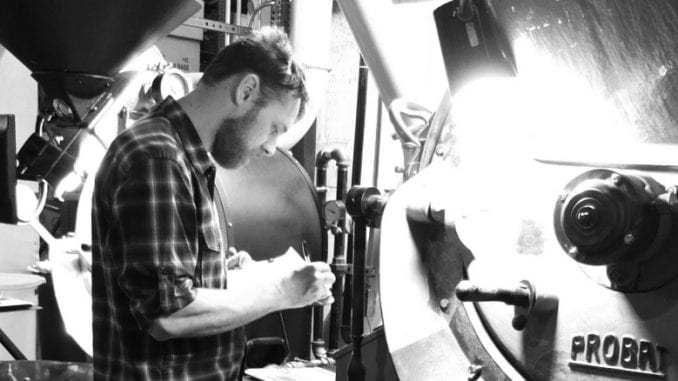
The New York City roasting veteran discusses his early forays into coffee, taking on a new professional challenge, and much more.
BY CHRIS RYAN
BARISTA MAGAZINE ONLINE
Photos courtesy of Ed Kaufmann
In the mid to late 2000s, New York City’s specialty-coffee scene underwent a period of explosive growth, with new companies launching, well-known coffee entities entering the picture, and entrenched brands adding roasting arms. Ed Kaufmann had a front-row seat for specialty coffee’s quick growth in America’s most populous city—working for several companies in a variety of jobs, Ed played a key role in laying the foundation for the healthy NYC specialty-coffee culture that exists today.
Eventually Ed narrowed his professional coffee focus to roasting and sourcing, and he joined Joe Coffee in 2012 to launch the roasting side of their business. For the last seven years, Ed was an integral part of Joe Coffee. This month, he’s accepting a new challenge, joining InterAmerican Coffee as a specialty trader. We talked to Ed about his early days in coffee, working in New York City, and his new gig.
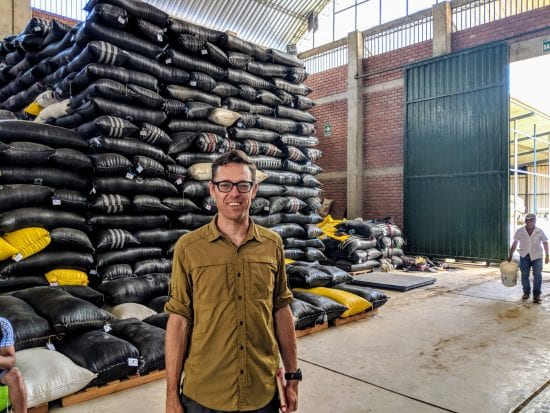
Chris Ryan: What are some of your earliest memories of coffee? What was your relationship with coffee before you started working with it?
Ed Kaufmann: My parents had a restaurant in Montana and we brewed coffee there. As with many people’s early memories with coffee, mine had to do with the smell of the freshly ground beans. When I first tried the brew I didn’t think it was very good, but I really wanted to be a coffee drinker for some reason, so I did what I needed to do to make it taste good (to an 11-year-old palate). I added a packet of hot cocoa powder, two to three sugar packets, two to three creamers, and a small slab of butter. I think I called it a “Freight Train” or something like that. I got my friends hooked on coffee too—we all thought it made us better snowboarders!
How did you come to work in coffee, and what were some of your early jobs before Joe?
In 2006 I moved to NYC on a whim and needed a job. I wanted to do something with food and beverage but didn’t want to work in a kitchen due to the horror stories I’d heard. The hours for a bartending job seemed like they wouldn’t work for me so I thought I’d give coffee a shot, so to speak.
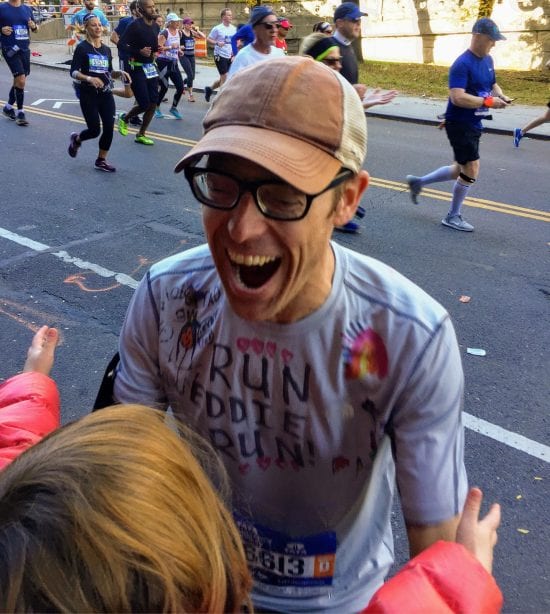
In October of 2006 I was hired at Cafe Grumpy, basically because I had lived in Portland, Ore., where good coffee was plentiful. I did pick up some knowledge just by being a customer at various Stumptown cafés and wholesale cafés during my time in Portland. I had enthusiasm, too. I really bugged them until they hired me, with no coffee experience. My first day of barista training included watching Billy Wilson’s barista competition routine! I thought that was pretty funny, but it set the tone. Thanks, Billy! I also loved the fact that coffee was so much easier to clean up than the pizza sauce or melted cheese from my restaurant days!
Working at Grumpy allowed me to meet many people and to taste a lot of coffee from different roasters. We were a multi-roaster shop and offered a different way to drink and think about coffee. A few people who really set the tone for me in coffee at that time were Andrew Barnett, Peter Giuliano, and John Moore. They had all worked in coffee forever and had such fresh energy for it as well as an endless supply of enthusiasm and curiosity.
A few years later I found myself working as a production roaster for Stumptown in Brooklyn. That was quite a ride. The opportunity really came about due to the connective nature of coffee. Everyone that worked in coffee in NYC would visit each other on their free time. I became close with baristas at Ninth Street, Gimme! and Joe during those years. My good barista buddy Ryan Goodrow made me aware of an opportunity with Stumptown, and I followed up and got the job. At Stumptown I learned how to roast coffee, but being one of the two first NYC Stumptown roasters, there were many unexpected challenges, and it really taught me to think quickly and creatively. I gained a deeper understanding of how machines worked and didn’t work. Many things I learned from Stumptown carried over into my role at Joe, whether I saw them as strengths or opportunities to improve.
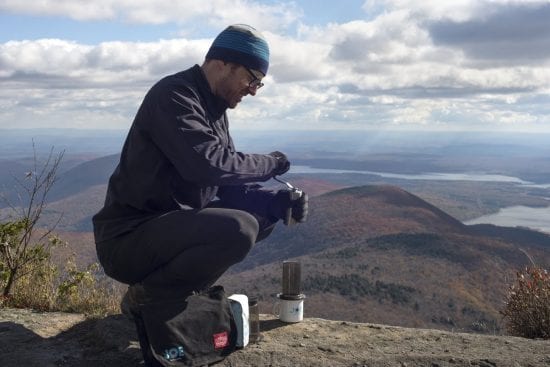
How did you come to work at Joe Coffee, and what various roles did you hold there? What has it meant to you to work there for so long?
I was at Joe for a little over seven years. I was hired through a casual conversation with the founder of Joe, Jonathan Rubinstein, one night in early 2012, as I was shopping out a business plan to start my own roasting company. I decided not to start my own business, but rather use my business plan to start a roasting department within a coffee shop company I had a ton of respect for in Joe. It was very special to help expand a company whose values and vision aligned with mine.
I started to work as a barista/educator at all of the Joe cafés while we came up with the plan of how we’d launch the roasting operation. I admit, I really just wanted to get roasting and avoid working at the shops, but those shifts and the people I met truly helped me get a sense of what people were drinking. It really guided me in how I sourced and roasted coffee. When we started roasting, I sourced green, roasted, bagged, delivered, managed packaging inventory, trained roasters, got the oil changed in the delivery Subaru—everything!
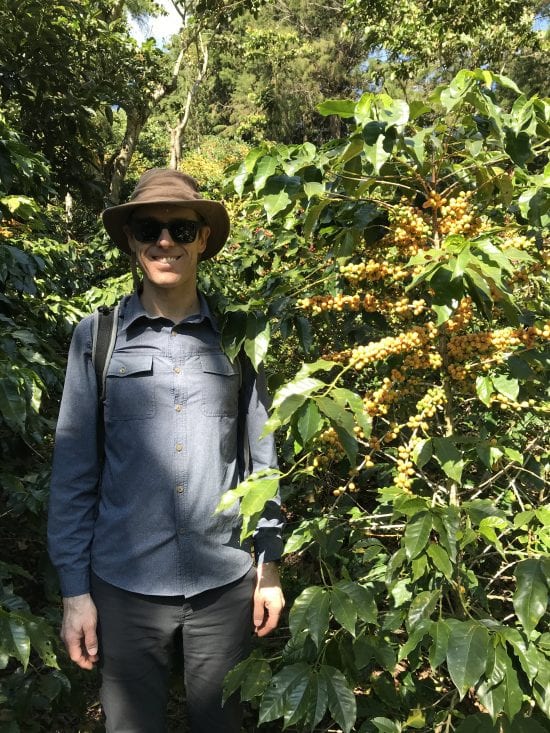
As we grew we added people, and by the end of my time there I was focused on green sourcing and was an active member of a new committee of people guiding sourcing, roasting, wholesale, and education of the company called CST (Coffee Strategy Team). It was cool. We established collaborative relationship management with our main suppliers of green coffee. It’s funny that seven years have passed since I started the roasting department, but even as I was phasing out, I still felt like there were so many cool things coming and so much to learn. It flew by, but I was there for over half of my time in coffee.
Can you tell me about your next job at InterAmerican? I understand you’ll be helping to open their New Jersey office, which will include a training center. What will your position be, and what do you expect to do day-to-day?
I was hired as a specialty trader, but there are many ideas for other projects I’ll be helping with. Every time Florian Benkhofer (CEO of IAC) and I try to get a quick lunch, it always turns into a two-plus-hour brainstorm session about ways to improve and add value for roasters and producers alike. I don’t have official confirmed plans yet, but I’m excited about the possibilities. I know that we will have an SCA certified lab, so we’ll likely hold Q Grader tests there as well as other cupping events.
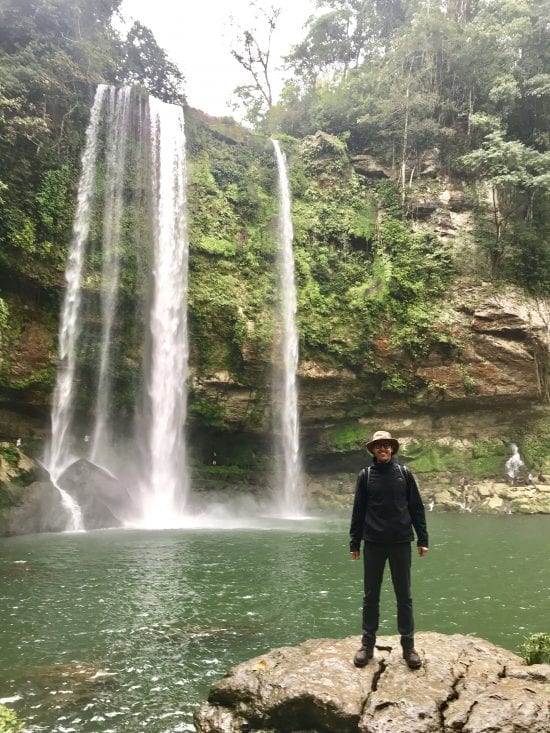
How do you feel about the new job? What do you like about working in this industry?
I feel like my next step is a very natural and exciting move for me. There are two main things that have kept me in this industry. First, coffee connects people, whether it be sending a mill manager in Burundi a text message or grabbing a cup with a friend. I’ve always loved how coffee can make the world feel a bit like the small town I grew up in. The second thing I love about this industry is the fact that the amount to learn about any part of it is limitless. Moving from my role as a buyer to my new role working with InterAmerican Coffee will connect me with more people around the world, and I feel like I’ll be walking in to my first day at work at my first coffee job. So much to learn!
Finally, what do you enjoy doing outside of the coffee world?
I love spending time with my 5-year-old daughter. She keeps me young and sees the world in a very unique way. I like to cook, ferment stuff, run, ride my bike to work (even in the winter, yes), and I play bass guitar in a band called Erostratus.


